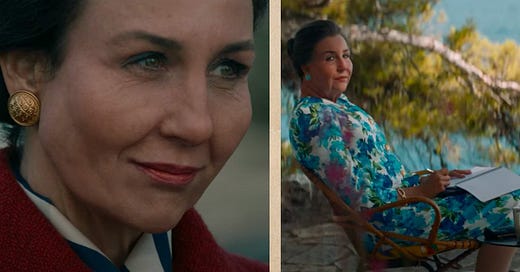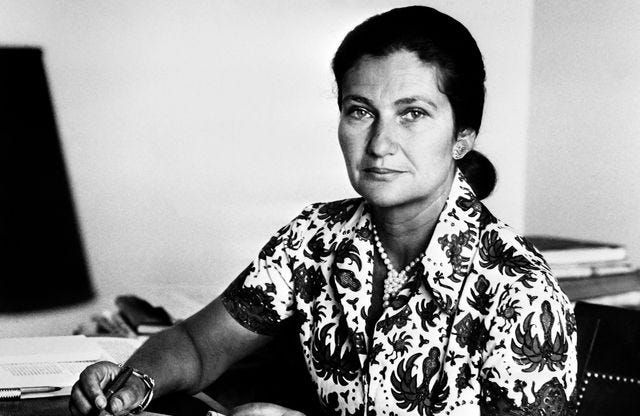Simone: To a great woman, Europe grateful
I went to see the movie Simone: le voyage du siècle, this weekend. This touching story made me want to write about one of the most important figure in recent French and European political history.
As a Frenchman, a euro-nerd and - I believe - progressive person, I had to see the movie on Simone Veil, called Simone, le voyage du siècle (Simone, le journey of the century), by Olivier Dahan.
I was expecting a traditional biopic, somewhat romantic and political story (similar to, for instance, the Oliver Stone trilogy of the US presidents). The movie I saw was extremely touching, eye-opening, and thought-provoking in many aspects.
To process what I saw, I must write about it, in the hope that it will convince you to go and watch it yourself. I can’t recommend it enough.
Simone : le voyage du siècle
The movie - you guessed it - is about the life of Simone Veil (born Jacob), from her youth in a laïque Jewish family in Southern France, her deportation to the concentration camps at a young age (she was 16 when she arrived at Auschwitz), her wedding with Antoine Veil, her brilliant career in the french judiciary administration and her political battles (right of abortion, European elections, etc.), to her visit back to the death camps in 2004.
The story was not linear, which was an interesting take on a life made of many struggles. Political battles resonate with the sexism of the post-war french society that Simone Veil faced in her adult life, and images of the camps are superposed with her rehabilitation into a fractured and still conservative country, about to start another war in Algeria.
Feelings explored in the movie are multiple, and without the affection of her husband, Antoine Veil, her sisters, family members, the positive influence of her mother and other mentors, the affection that French men and women had for her, the pictures would have been a grim succession of tragic losses, hate crimes, pain, and deception. It made me realise how important the affection of loved ones is in a life of political and personal struggles.
Reconcile Europe with itself
But enough with the movie itself. If this piece has a place on The Beubble, it is because it touches on a topic that is familiar to us: Europe.
The last fight of Simone Veil, along with the recognition of the pain of deportation, was to unite Europe.
After centuries of wars and the horrors of the nazi regime, the task was daunting to unite former enemies. Yet, figures like Simone Veil had the lucidity and the courage to accept that peace must be built with both the offenders and the offended and that both France and Germany had to face each other and accept carrying on despite the trauma of war.
Simone Veil became the first President of the first directly-elected European Parliament. She said herself that making Europe had her reconcile with the 20th century.
As she did all her life, Simone Veil fought for the dignity of those in need. She demanded that Europe act in the Balkans when Yugoslavia broke up.
Today, as we look at Europe the way it is, we can assess how much was done. The enemies of yesterday are now the strongest pillars of the European Union, which, as Simone Veil told, is engaged in the path of democracy.
A founding mother?
The idea is making its way. In addition to the few men who brought Europe together after the war, it is time we recognize the role that women played in the foundation of our Union. Simone Veil is definitely one of them.
In my opinion, she should deserve the right to be remembered just like Monnet, Schumann, De Gasperi or the other Spinelli, Churchill, and the like. Simone Veil would be a tremendous addition to the founding people of a United Europe, if only for her engagement for women’s rights, the dignity of all people, and the democratisation of European institutions.
Would not it be amazing to have, on our banknotes, instead of silly gates and bridges that one cannot find anywhere, the familiar faces of those who saw, when there was none, a path to reconciliation?






